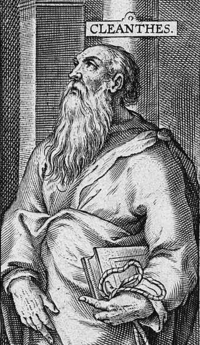Reference



OpenAI's Answer
Heraclitus, a pre-Socratic Greek philosopher, and the ancient Vedic texts from India share notable similarities despite their distinct cultural backgrounds. Here are a few key parallels:
-
Unity of Opposites:
- Heraclitus: Known for the doctrine of the unity of opposites, he believed that all existing entities are characterized by pairs of contrary properties. This idea is central to his famous saying, "The way up and the way down are one and the same" (source).
- Vedic Literature: The Vedic texts also emphasize the idea of dualities and their unity. For instance, the concepts of Purusha (consciousness) and Prakriti (matter) in the Sankhya philosophy underscore the interdependence of opposites.
-
Concept of the One and Many:
- Heraclitus: He posited that all things are one and that the many arise from this one source. This is evident in his fragmentary statements about the "One" from which everything else follows.
- Vedic Literature: The Upanishads, part of the Vedic texts, frequently discuss the concept of Brahman (the ultimate reality) and Atman (the individual soul) as one and the same, encapsulating the unity of the many diverse forms of existence into a single ultimate reality.
-
Primordial Element - Fire:
- Heraclitus: Fire was proposed by him as the fundamental element that constitutes the universe, symbolizing constant change and the process of becoming.
- Vedic Literature: Fire (Agni) holds a central place in the Vedic rituals and is considered the mediator between heaven and earth. The concept of fire in Vedic rituals signifies transformation and the continuity of existence.
-
Logos and Cosmic Order:
- Heraclitus: Introduced the concept of Logos, referring to an underlying order or reason governing the cosmos.
- Vedic Literature: The idea of Rta (cosmic order) in the Vedas resonates with Heraclitus's Logos. Both signify an inherent order and truth in the structure and functioning of the universe (source).
-
Eternal Change and Becoming:
- Heraclitus: Famously stated, "You cannot step into the same river twice," emphasizing the ever-changing nature of the universe.
- Vedic Literature: The cyclic nature of time and the universe is a core theme in Vedic philosophies, symbolized by the cycle of creation, preservation, and destruction (Srishti, Sthiti, and Samhara).
For a more detailed comparative analysis, you can refer to academic papers on the subject, such as those available on JSTOR and ScholarWorks.
Relevant Images:
Follow Up
Related
What differences exist between prion and non-prion encephalopathies?
How does the concept of the Earth Office relate to postmortem existence in Daoism?
What evidence exists for the presence of oil and methane in non-sedimentary rocks?
What are the main types of carbon compounds that may exist in the Earth's mantle according to abioge